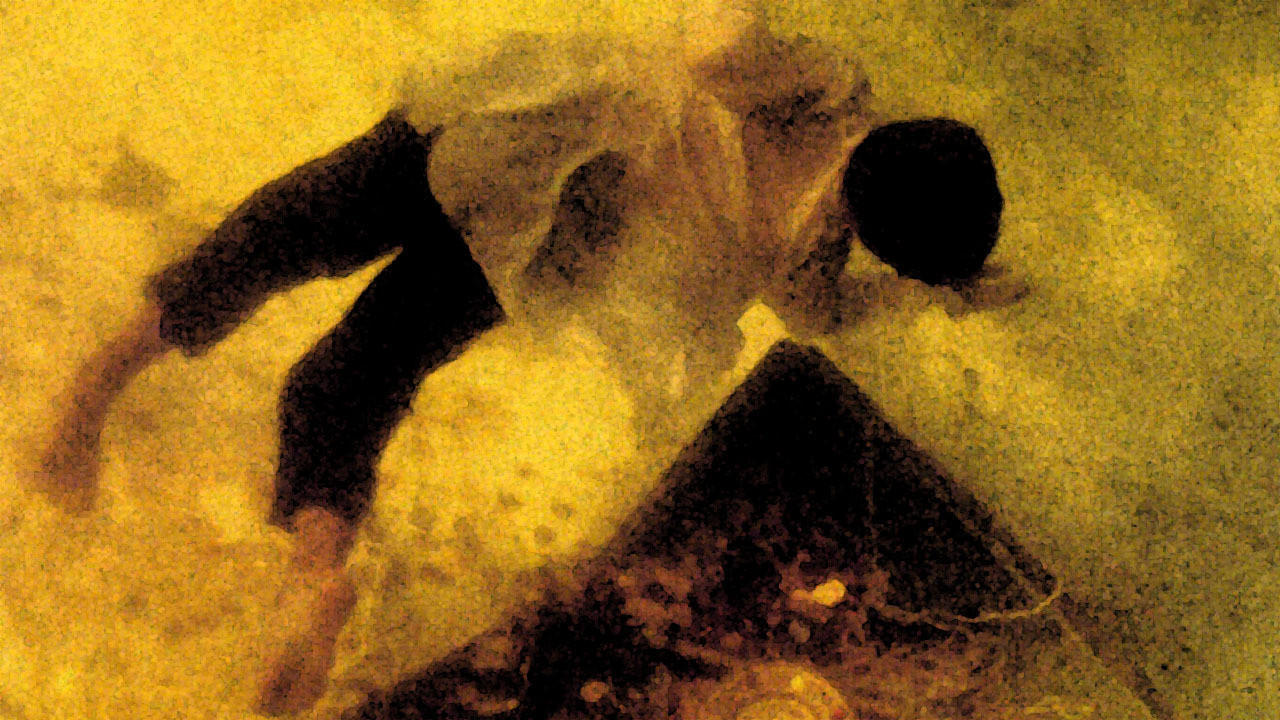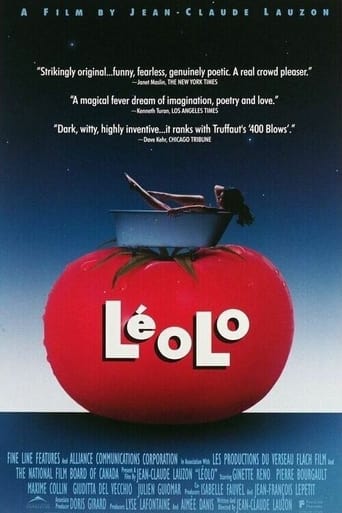

Save your money for something good and enjoyable
... View MoreAbsolutely brilliant
... View MoreEntertaining from beginning to end, it maintains the spirit of the franchise while establishing it's own seal with a fun cast
... View MoreIt's funny, it's tense, it features two great performances from two actors and the director expertly creates a web of odd tension where you actually don't know what is happening for the majority of the run time.
... View MoreLéo Lauzon is a young boy living in a Montreal slum with his weird family. He doesn't get along with his grandfather. His older brother Fernand starts pumping up after getting picked on by a bully. His sister Rita is mentally disturbed. He writes in his book and has an imaginary world. He doesn't see any similarity between himself and his rotund silent hard-working father. He imagines he comes from another father who masturbated into a crate of tomatoes in Sicily. His mother gets impregnated after getting knocked into the pile of tomatoes.This is one weird movie. It has a lot of odd sexual allusions. The memorable scenes are utterly unique. I don't really like narrators in general. I wish the movie would have more of a structure to the story. His coming-of-age story meanders too much. Nevertheless, this is a good and completely different kind of movie.
... View MoreOne thing I'll say about Leolo is that you definitely won't forget it. Thankfully, though, and quite necessarily, I'm not limited to that single sentence. Love it or hate it, this is an experience that will stick with you, and which over time will most likely come up on the positive side of your filmgoing experiences. The film's protagonist, Leolo Lauzon, is a young French Canadian boy who claims to be a son of Italy, a notion he accredits to a miraculous encounter between his mother and a tomato grown in Italy. He is the youngest in his family, and at that stage in his life, he is also the most sane. In his spare time, he escapes the daily dysfunction of growing up by writing eloquently on scraps of paper, which he then discards, and which are then read by a local homeless man: the texts serve as the film's narration. Though essentially a story about growing up, this is a film that can be read from many angles, and whose thematic depths span everywhere between the themes of family, fear, hate, lust, and love. Yet, in spite of its broadness, the film manages to be simultaneously and paradoxically intimate, epic, far-fetched, and spot-on.I watched this movie under the pretext that it was either THE best, or at least ONE of the best Canadian films ever made, and so my expectations were quite high. The other film that holds claim to this distinction is called "Mon Oncle Antoine," directed by Claude Jutra, and which I highly recommend. That film is the type you can watch and reflect on with an immediate love that will never wane over the passage of time. Leolo, on the other hand, is like a scape on the knee: at first it's painful and unpleasant, but soon it builds and forms into a scab that you find satisfying to pick. Excuse the obscurity of that analogy, but if you watch the film I think you'll find that it applies quite nicely.Some might find Leolo alienating, others revolting, and some just plane weird. Personally, I recommend that you turn off your internal "parental discretion" metre, and just watch this film for what it is, which at times is the most visceral, human, and beautifully shot films you are likely to witness. In terms of cinematic indulgence, it might have a few equals, but there are none that do it better. Initially, I rated this movie a 4/10, feeling as though it was terribly overrated, but you know what? It grew on me. I find that on a fairly regular basis, this movie and particular scenes enter my mind, and they do so for all the right reasons. I find this odd, as many of the movies I claim to love do not do this very same thing, which I think says a lot about the substance and strength of this film. It tells me that the moments that might be considered exploitive or overly-explicit, and maybe even illegal, are there for more than mere shock. In closing, I simply have to implore you to watch this film, and though you may rue the experience the first time, take my word for it that you won't regret it, though that might take a few weeks.
... View MoreThis is one of the few movies that left me mystified. Was it trying to create only mood (however unpleasant), was it trying to convey a deep message (however obscure), was it trying to show that there is squalor in modern Montreal (however unsurprising)? All of these? None of these? Why was this movie made?A boy is coming of age in a totally dysfunctional family. The parents are obsessed with bodily functions - the father checks the boy's output after each visit to the toilet; all five children are forced to take laxatives. If you see dark humor in this, then you may like this movie. I'm afraid the humor flew over my head.We see rats in the sink, rats in the bathtub. In one scene, that I assume is to have some special meaning, we see at some length a filthy turkey in the bathtub. What's the meaning of that? And what an inspiring thing it is to see a young boy having sex with a cat.I felt like taking a shower after watching this movie. The boy, Léolo, finds his family so difficult to deal with that he escapes into dreams, fantasy, and writing. Maybe understandably, most everyone in this family winds up going nuts or heading toward death. The music is a grab bag. There is a mixture of things like Tom Waits' "Cold Cold Ground," Tallis' "Spem in Allum," the Stones' "You can't always get what you want," and chanting.Much of the movie is told in a voice-over and sections of the novel "L'avalée des avallés" by the Canadian Réjean DuCharme are read - this is a book that Léolo is reading and it is the only book in his house. A recurring quote is, "Because I dream, I'm not." I think the idea behind that is that we dream to escape reality, but your guess is as good as mine.I have to give this movie credit for coming out of nowhere to give us something like we have never seen before, but that doesn't mean that we will like it. Sometimes there is a fine balance between art and pretension and, for me, this movie weighs in on the pretension side.
... View MoreI give this film a 10 for its artistic qualities. It's one of the best Canadian films that has ever been made. The early tragic death of the director (who died shortly after the making of this film) prevented it from getting promoted, and the attention that it deserves.Why I think that Léolo has the recipes to perfect art:1. The poetry: Léolo has a secret argument. On the surface it's a story of a coming-of-age child who discovers sex and death, who rebels against the family's hereditary madness and does so by becoming a dreamer. The madness itself is a metaphor of the threshold between reality and fiction, which is played with in the magic-realism in the narration. The intertextuality to Don Quijote (one of its main theme is madness and reality and fiction), the metaphor to the plastic red rose made in China, also works into the theme of what it seems and what it really is, and the ambiguity that exists in between.2. The social context: The reality of poor, working class French Canadians living in a Anglo Canadian dominant society, and the experience of a child growing up in this grotesque reality.3. Entertainment: The dark humour - the scene where the cross falls off the wall, for example. The alternate ways that one could use pig liver.4. The humanity: The profound psychological exploration of the characters. The magic-realism also provides bitter humour in this context, such as in Fernand's case. He gets buff out of fear, but the fear remains in him no matter what he does. Léo's clash in identity submits him to madness but also is preventing him from it because he is dreaming, and in this dream he is the Italian Léolo.These are only quick memorable examples. Watch the film for the full experience.
... View More